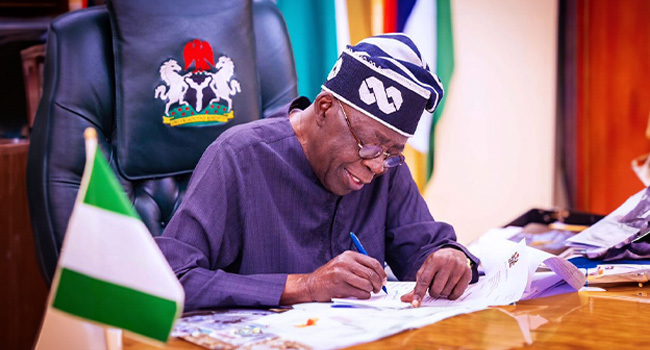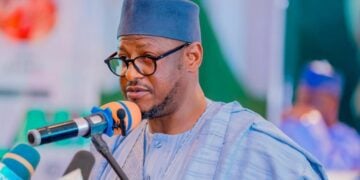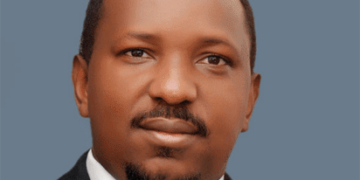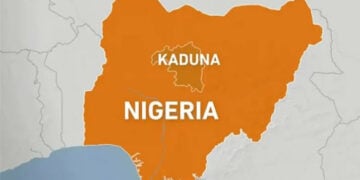President Bola Tinubu has approved the deployment of electric vehicles (E-vehicles) in the North-East to ease mobility and reduce transportation costs across the states in the region.
The approval was given on Wednesday at the State House, Abuja, during a meeting with the leadership of the North-East Development Commission (NEDC), led by its Managing Director, Mohammed Alkali.
Speaking to State House Correspondents, Alkali said that following a comprehensive analysis of the comparative advantage of Compressed Natural Gas (CNG) powered vehicles, the Commission decided on the use of e-vehicles across the six states of the region.
“As you can recall, the directive of the President that cars, as far as possible, should use CNG or electric vehicles,” Alkali said.
He explained that after reviewing the options, the Commission concluded that e-vehicles would be more effective in the North-East.
“We did a total analysis of our region and we looked at the comparative advantage between CNG and e-vehicles. After our analysis, we concluded that while CNG can work, e-vehicles are better suited for many reasons,” Alkali added.
The Commission also planned to introduce modular solar power units across the region to support the operation of the e-vehicles. “Our plan is to create modular solar power units across the states, which will be used to power a certain percentage of the e-vehicles when deployed,” Alkali said.
The NEDC has identified three categories of e-mobility for the region: e-buses, e-tricycles, and e-taxis. According to Alkali, the e-buses are designed to carry a minimum of 40 passengers and will be used for intra-state travel.
“There are three categories. One is the e-buses, which can carry about 40 people… for intrastate, not inter-state,” he explained. The Commission also presented samples of e-taxis and highly modified e-tricycles to the President.
Alkali highlighted modifications made to the tricycles, which are designed to carry eight passengers instead of the usual four. “We’ve modified it to carry eight people, and it’s fully covered and very convenient,” he said.
He added that the tricycles have been reinforced to handle the weight and demands of passengers in the region. “We asked our engineers to modify the structure of the tricycle. When you look at it, you’ll see the tires are bigger, the frame is bigger, and so on.”
Alkali assured that local content had been considered, with plans for the tricycles to be fabricated locally within the Northeast.
The NEDC is also working on a 10KVA solar power grid to provide electricity to support the e-vehicles. “We’ve already made a plan to back up with a solar power grid,” Alkali stated.
As part of its broader vision for the region, the Commission has developed a comprehensive master plan covering 11 pillars to fully activate the e-mobility initiative.
Alkali further mentioned that the Commission would engage with stakeholders, particularly road transport workers, to integrate their feedback before the full deployment of e-vehicles across the region.
“We will engage stakeholders, especially road transport workers, to integrate their concerns and advice,” Alkali said.
He added” In addition, we’re also considering establishing five KVA or 10 KVA solar-powered grid, stand alone, so that this can be backup for the inadequacy of the power supplies my friend is talking about.
So we’re aware of all these challenges, but sometimes with challenges come opportunities. When we start, yes, we may have one or two challenges, but we already made a plan to see that beside the usual generating plant, we are also going to back up with some stand alone solar power grid to power this station we are going to build,” he said.
We’ve got the edge. Get real-time reports, breaking scoops, and exclusive angles delivered straight to your phone. Don’t settle for stale news. Join LEADERSHIP NEWS on WhatsApp for 24/7 updates →
Join Our WhatsApp Channel










